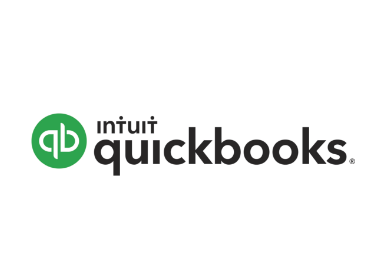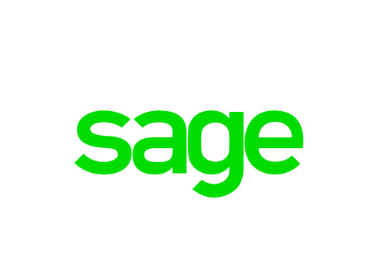October 2024 Budget
Posted on 31st October 2024 by David Rudd
30 October 2024
Following the recent budget announcements, we have prepared a concise summary of the key points. This document highlights the major changes and initiatives that may be relevant to both individual and business financial planning.
Please take a few moments to review the summary attached. We recommend that you look over any areas that might impact your tax situation, business operations, or financial strategy.
If you have any concerns or questions about how these changes may affect you, please feel free to reach out. We’re here to discuss any potential implications and provide guidance tailored to your specific circumstances.
Thank you, as always, for trusting us with your financial matters.
At last, we have Rachel Reeves solution to the current malaise of the UK economy. Government investment has been taken out of the calculation of Government expenditure, presumably because amounts invested create assets for the UK, and this has allowed her to invest heavily in UK infrastructure; the NHS, schools and other projects. To balance the government’s profit and loss account, she has increased the tax take by £40bn. As a result, the UK now has the highest tax burden since the 1940s.
Thankfully, many of the speculated tax increases, a mansions tax, wealth tax, loss of higher rate relief for pension contributions and increases in dividend tax have not materialised. However, there are increases in capital gains tax and employer’s National Insurance.
National Insurance
As expected, the Chancellor announced an increase in employer’s (secondary) Class 1 National Insurance, which is increased by 1.2% from 13.8% to 15% from 6 April 2025. In something of a double whammy, the secondary threshold is also reduced, falling from £9,100 to £5,000 from the same date.
However, smaller employers will be relieved by the announcement that the Employment Allowance is to rise from £5,000 to £10,500 from 6 April 2025, meaning many small businesses will escape secondary contributions. From 6 April 2025, larger employers will also benefit from the Employment Allowance as it will no longer be restricted to those whose secondary Class 1 National Insurance liability was less than £100,000 in the previous tax year.
PLANNING NOTE: The upper secondary thresholds for under 21s, apprentices, armed forces veterans and new Freeport employers remain unchanged, and employers looking to mitigate the increases could consider taking on workers within these groups. Taking on two part-time workers rather than one full-time worker will also reduce their NIC bill.
PLANNING NOTE: The Class 1A rate and Class 1B rate, which are aligned with the secondary Class 1 rate, also rise to 15% from 6 April 2025. This means that the Class 1A contributions payable on chargeable benefits in kind will also increase from 13.8% to 15%.
There were no changes to employee contributions. The primary threshold and upper earnings limit remain at, respectively, £12,570 and £50,270 until 6 April 2028 (although the lower earnings limit is to rise in line with inflation for 2025/26). The main rate remains at 8% and the additional rate at 2%.
The Class 4 rates and thresholds are also unchanged. The main rate remains at 6% and the additional rate at 2% for 2025/26. The lower profits limit remains at £12,570 and the upper profits limit at £50,270. However, the rate of voluntary Class 2 contributions increases to £3.50 per week for 2024/25 (currently £3.45) and the voluntary Class rate rises to £17.75 from 6 April 2025 (currently £17.45). The small profits threshold is increased to £6,845.
PLANNING NOTE: These employer NIC cost increases will be significant for larger employers and may warrant a recalculation of budgets for the coming year.
Please call if you have concerns about issues raised by these NIC changes.
National Minimum Wage
The National Living Wage for workers over 21 will increase by 6.7% in April 2025 to £12.21 per hour.
The National Minimum Wage for 18 to 20-year-olds will go up by 16% to £10 per hour, for 16 to 17-year-olds will go up by 18% to £7.55 and the apprentice rate will go up by 18% to £7.55.
The system will be changed to a “single adult rate” over time.
Corporation Tax
There will be no change in respect of Corporation Tax with the government committing to capping the headline rate at 25%. The Corporation Tax Small Profits Rate and marginal relief will be maintained at the current rate and thresholds too.
Capital Gains Tax
It had been mooted that capital gains tax (CGT) rates would be aligned with income tax rates, thankfully, this has not occurred.
Instead of increasing the residential property tax rates, the Chancellor opted instead to increase the main rates of CGT – the lower rate will rise from 10% to 18% and the higher rate will rise from 20% to 24%. The changes take effect from 30 October 2024. There are no changes to the residential tax rates, which remain at 18% and 24%. The rates continue at this level for 2025-26.
The increases in the main rates of CGT means that this tax is charged at the same rates (18% or 24%) regardless of nature of the assets disposed.
PLANNING NOTE: Landlords will be relieved that the higher residential rate will remain at 24% until at least 5 April 2026. However, where a landlord is planning to sell, it may be prudent to do so while the 24% rate remains available, as beyond April 2026 nothing is guaranteed.
If you are considering disposals of assets affected by CGT please call so we can consider your options.
Business Asset Disposal Relief
Where the conditions are met, Business Asset Disposal Relief (BADR) provides a favourable rate of CGT on gains up to the £1 million lifetime limit. The favourable rate is currently 10%, and despite increases in the main capital gains tax rates from 30 October 2024, it remains at this level until the end of the current tax year. The rate is increased to 14% from 6 April 2025 and further increased to 18% from 6 April 2026. The £1m lifetime limit has not been reduced.
PLANNING NOTES:
Where the qualifying conditions are met and a disposal is on the cards, it makes sense to make the disposal prior to 6 April 2025 – saving up to 14% where the higher rate would otherwise apply.
Landlords with furnished holiday lettings who meet the conditions can also benefit if they dispose of their property within three years from the end of their FHL business. Again, making the disposal sooner rather than later will maximise the impact of BADR. The savings where the gain would otherwise be taxed at the higher rate fall to 10% from April 2025 and to 6% from April 2026.
Contact us for help in planning your disposal to maximise the benefit of BADR.
Income Tax
There were no changes to the income tax rates and thresholds, which are frozen until April 2028. The Chancellor was expected to extend the freeze to 2030; instead, she opted to raise the thresholds in line with inflation from April 2028.
PLANNING NOTE: Although no changes to thresholds are forecasted until April 2028, as this date approaches higher income earners may be advised to defer bonuses or other flexible income options to push earnings in the 2028-29 tax year.
High-Income Child Benefit Charge
The government are not proceeding with the reform to base the High Income Child Benefit (HICBC) on household incomes. Instead, from 2025 (no further date specified), employed individuals will be able to pay their HICBC through their tax codes which could remove a considerable number of people from the requirement to fill in a tax return.
For those not paying through their tax code, the government will pre-populate Self-Assessment tax returns with HICBC data with the presumed aim of removing the risk of people not realising they have to pay it.
Making Tax Digital
Making Tax Digital for Income Tax (MTD ITSA) is being introduced from April 2026 for sole trader and landlords with business and/or property income over £50,000. It is to be extended to landlord and sole traders with business and/or property income of more than £30,000 from April 2027.
The Government have announced that sole traders and landlord with business and/or property income in excess of £20,000 will be brought within MTD ITSA by the end of the current Parliament.
PLANNING NOTE: A key element of MTD ITSA is converting accounting records into a digital format that can “talk” to government servers. As we approach the April 2026 deadline, it is imperative that affected traders and landlords have converted to the use of MTD-approved software. If you are an affected sole trader or landlord and you have not yet converted your record-keeping to an approved format, please get in touch. We can help you choose an appropriate software product and assist with training. If required we can also organise bookkeeping for you.
Inheritance Tax
There were no changes to the Inheritance tax nil rate and residence nil rate bands, which remain at, respectively, £325,000 and £175,000. However, the thresholds, which were due to remain at this level until 2028, will now be frozen until 2030.
Inherited pensions will be brought within the charge to IHT from April 2027.
The Government are to reform Business Property Relief (BPR) and Agricultural Property Relief (APR). The existing 100% rates of relief will be capped at the first £1 million of combined agricultural and business property; thereafter, the rate of relief will be 50%. A technical consultation is to be published in early 2025.
This will come as a blow to those looking to pass on their business or farms to their children.
PLANNING NOTE: If you are concerned by this change please call asap so we can consider your options.
Non-Domiciled Individuals
The changes to the tax treatment of non-domiciled individuals will go ahead as previously announced. The remittance basis of tax will be abolished and replaced with a residence-based regime from 6 April 2025. UK tax will not be payable on foreign income and gains for the first four years of the regime. A new residence-based system of inheritance tax will also apply from 6 April 2025.
PLANNING NOTE: This is a significant change, and we will be in touch with all affected clients to review present tax planning.
Furnished Holiday Lettings
The favourable tax regime for furnished holiday lettings will come to an end on 5 April 2025 as planned, affected owners have the year 2024-25 to consider their CGT planning options before the option to rollover gains and claim the 10% rate on the disposal of a property expires.
PLANNING NOTE: Contact us to discuss how income from FHLs will be treated from April 2025, and how to secure BADR if you close your business and sell your properties.
Stamp Duty Land Tax
To discourage investment in buy-buy-lets and the purchase of second homes, the SDLT supplement on second and subsequent residential properties is increased from 3% to 5% from 31 October 2024. It will not apply where contracts were exchanged before that date, but completion is on or after 31 October 2024.
PLANNING NOTE: Contact us to discuss what this means for your affected planned property purchases.
Company Cars
Electric Vehicle Benefit in Kind
The appropriate percentage used to calculate an individual’s company car tax for fully electric cars, which currently rises by one percentage point per year until 2027/28, will be maintained. From 2028/29 this will increase by 2 percentage points per year, meaning that the percentage rate for 2028/29 will be 7% and for 2029/30 will be 9%.
This is different from the amounts petrol and diesel cars pay, which will increase yearly until hitting 37%.
The appropriate percentage for cars with emissions of 1–50g of CO2 per kilometre, including hybrid vehicles, will rise to 18% in 2028/29 and 19% in 2029/30.
For all other vehicle bands, the percentage will increase by 1 percentage point per year in 2028/29 and 2029/30.
The maximum percentage (currently set at 37%) will also increase by 1 percentage point per year to 38% for 2028/29 and 39% for 2029/30.
This means for vehicles with emissions of 51g/km and over, the percentage will increase to 19% – 38% in 2028/29 and 20% – 39% in 2029/30.
Van Benefit in Kind
The Government will uprate the Van Benefit Charge and Car and Van Fuel Benefit Charges by CPI (Consumer Price Index) from 6 April 2025.
Capital Allowances
100% First Year Allowances for zero-emissions cars and electric charging points will be maintained until 31 March 2026 for Capital Allowances purposes.
Double Cab Pickups
In February of 2024, the Government announced a change to the rules regarding the treatment of double cab pickups and whether they would be defined as a car or a van. It then made a dramatic U-turn only days later. Today, the Chancellor has announced that the treatment of double cab pickups will indeed be changed.
From 1 April 2025, HMRC will now treat double cab pickup vehicles with a payload of one tonne or more as cars for the purposes of capital allowances and benefits in kind.
Existing capital allowances treatment will apply to vehicles purchased before April 2025, and transitional benefit in kind rules will apply for vehicles purchased, leased or ordered before April 2025. Employers will be able to use the previous treatment until the earlier of disposal, lease expiry, or 5 April 2029.
School Fees
No change here. The imposition of VAT on private school tuition fees will go ahead as planned from 1 January 2025.
Umbrella Companies
To tackle the significant levels of tax avoidance and fraud in the umbrella company market, the government will make recruitment agencies responsible for accounting for PAYE payments made to workers that are supplied via umbrella companies. Where there is no agency, this responsibility will fall to the end client business. This will take effect from 6 April 2026.
Close company loans to shareholders
Up until 30 October 2024, if a close company made a loan to a participator to avoid tax, and the participator repaid the loan, no tax would be payable. The changes announced in the Autumn Budget provide that tax will be payable on these loans even if they are repaid if their purpose was to avoid tax.
We can help
This latest government announcement means that now is the time to ensure you have a tight grip on your numbers and a clear financial plan.
Please contact us if you need more information on any of the announcements made, or to learn more about how Steven Burton & Co can help you to better understand your business finances & tax affairs.
All of the above comments are made prior to seeing the draft legislation that will enact the various changes. The large government majority in Parliament will probably mean that the changes will go ahead as planned. However, readers are advised to take professional advice before making any changes to their personal or business affairs based on the above commentary.
This material has been prepared for informational guidance purposes only. Whilst every effort has been made to ensure the contents are accurate, information contained may not be comprehensive. Furthermore, it is not intended to provide, and should not be relied on for, tax or accounting advice. Steven Burton & Co Limited can not accept any liability for any errors or omission or for any person acting on or refraining from acting on the information provided
Source: You can read the full UK Autumn budget on the GOV website. https://www.gov.uk/government/publications/autumn-budget-2024/autumn-budget-2024-html










